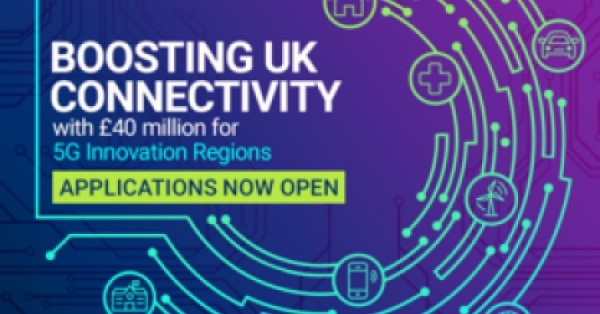The UK government, in its latest move to foster technological innovation, has launched a £40 million fund to harness the power of 5G and expedite digital transformation across the country. The initiative aims to put the UK at the forefront of the global 5G revolution, bringing high-speed, reliable, and secure connectivity to businesses and residents alike.
“The dawn of the 5G era heralds exciting opportunities,” the Minister for Data and Digital Infrastructure, Sir John Whittingdale, commented. “This new fund represents our commitment to help local areas across the country realise these opportunities and be at the forefront of Britain’s world-leading 5G movement.
The initiative is designed to nurture 5G Innovation Regions throughout the country by allocating funding to areas that can showcase how they will spearhead the development and uptake of 5G and other associated technologies. This commitment ensures that communities, from bustling cities to rural locales, can optimize the benefits of advanced wireless connectivity and digital technologies, attracting commercial investment to invigorate the economy further.
In keeping with the government’s strategy, the £40 million fund will catalyze innovation in key sectors such as advanced manufacturing, transport, agriculture, and public services. The intention is to create a network of digitally connected places across the UK driven by next-generation technology. The funding program is open to local and regional authorities, encouraging them to apply and show ambition in their plans for leveraging 5G’s rewards.
5G technology’s potential applications are vast and transformative. They include creating interconnected networks of sensors that can monitor and improve air quality by managing traffic more efficiently and deploying 5G-enabled drones to monitor fields and crops, gathering data on weather and environmental conditions. Research indicates that widespread adoption of 5G could result in productivity gains of up to £159 billion by 2035.
The Wireless Infrastructure Strategy of the government envisions a future where advanced wireless connectivity underpins a range of innovative technologies. These could include Artificial Intelligence-driven solutions, autonomous vehicles, and digital twins – virtual environments where real-world objects such as buildings or wind turbines can be tested under different conditions using advanced computer simulations.
Hamish MacLeod, Chief Executive of Mobile UK, said, “Driving adoption of 5G is key to releasing the full benefits of this technology, and the government’s new £40 million fund to support Innovation Regions is an important step. I look forward to seeing the active participation of local and regional authorities whose communities and businesses will be better positioned to realise the benefits of advanced wireless connectivity.”
The UK Telecoms Innovation Network (UKTIN) will also launch a nationwide campaign to expedite further 5G adoption in sectors from transport to manufacturing. Collaborating with the 5G Innovation Regions, this campaign will unite businesses eager to incorporate 5G services with telecom providers and vendors. It will provide businesses with a clear understanding of the benefits 5G-enabled services can bring and the means to access this transformative technology.
The 5G Innovation Regions, supported by the government through the DSIT Future Network Programmes team and UKTIN, will continue developing their digital ecosystems until March 2025. They will amplify local and national activities like Project Gigabit, Investment Zones, and devolution deals, supporting local digital growth.
Applications for the fund will close on 10th September 2023, with winning bidders to be announced later in the year. The UK’s ambition to create a digital-first economy is clear, and this £40 million fund to boost 5G innovation is another significant step in that direction.





























